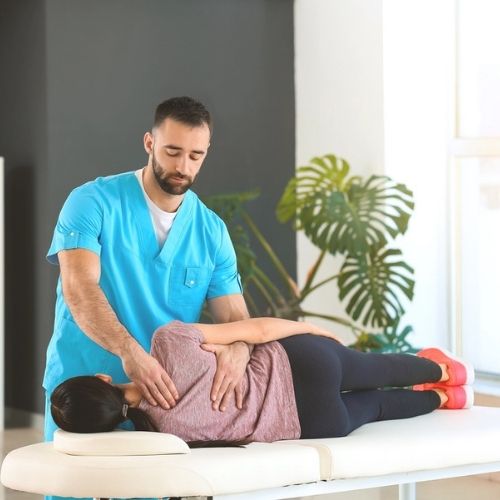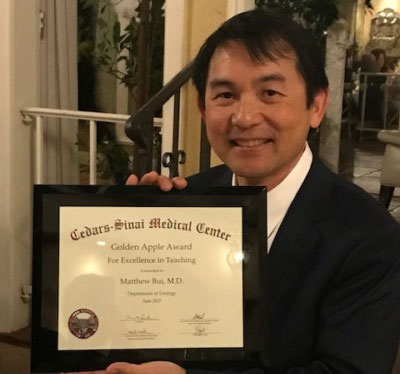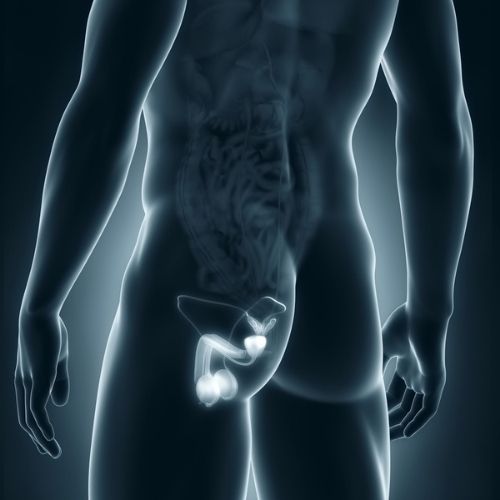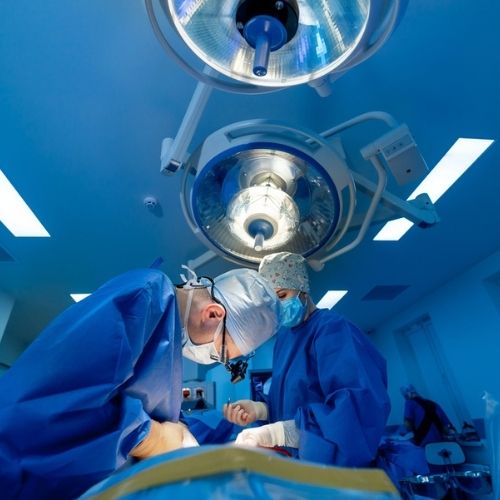What is low testosterone?
Low testosterone (low T), also known as male hypogonadism, is a medical condition that occurs when your body isn’t producing enough testosterone. Testosterone is the primary sex hormone in men that plays a vital role in many bodily functions, including the development, maintenance, and promotion of sex drive, muscle mass, and energy levels.
It’s a natural part of aging for testosterone production to start to decline. Most men experience a gradual decrease in their testosterone levels beginning around age 30, with a drop of about 1–2% each year.
To help define this condition, the American Urological Association (AUA) generally considers testosterone levels below 300 nanograms per deciliter (ng/dL) in a blood test as low for adult men.

What causes low testosterone levels?
Several factors cause low testosterone, and it is essential to identify the specific causes to help determine the best course of treatment.
Some of the primary causes are:
- Age: As briefly mentioned, this is the most common cause of a reduction in testosterone levels. Testosterone production naturally decreases with age. Although a gradual process, it can be a significant factor in many cases of low testosterone.
- Hypogonadism: Male hypogonadism itself can be caused by two different conditions:
- Primary hypogonadism: This occurs when the testicles themselves aren’t producing enough testosterone and could be due to issues with the testicles, such as undescended testicles, genetic conditions (like Klinefelter syndrome), or testicular injuries.
- Secondary hypogonadism: This is when the problem lies in the brain’s hypothalamus or pituitary gland areas that control hormone production. Conditions affecting these areas can disrupt the signals that tell the testicles to produce testosterone.
- Medical conditions: Some chronic medical conditions can contribute to low testosterone. These include:
- Obesity: Being overweight or obese is associated with lower levels of testosterone.
- Type 2 diabetes: High sugar levels can disrupt testosterone production.
- Sleep apnea: This sleep disorder causes pauses in breathing during sleep and can also affect testosterone production.
- Chronic illnesses: Conditions like kidney disease, liver disease, heart disease, high cholesterol, endocrine disorders, and HIV/AIDS can also impact testosterone levels.
- Medications: Some medications can have side effects that include lowering testosterone. These include chemotherapy medications, steroids, opioids, and some antidepressants.
- Lifestyle factors: While not direct causes, certain lifestyle factors can play a role in low testosterone production:
- Chronic stress: High levels of stress can interfere with hormone production.
- Lack of sleep: Poor sleep can cause testosterone deficiency.
- Excessive alcohol consumption: While moderate alcohol intake may be okay for some, excessive alcohol can damage the testicles and affect hormone production in the long run.
How common is low testosterone?
Low testosterone levels are more common than many people realize.
Studies have shown that nearly 40% of men over 45 experience some degree of low T. That number increases with age, reaching approximately 50% in men over 80.
What this tells us is that low testosterone is a very prevalent condition.
What are the signs and symptoms of low testosterone?
It’s easy to dismiss specific changes in your body as simply a part of getting older. Many might assume that feeling tired all the time, experiencing a decrease in sexual function, or noticing muscle weakness is just a natural part of the aging process. However, it’s essential to know that these could be signs and symptoms of low testosterone, also known as testosterone deficiency.
Symptoms of low testosterone
These are more general changes you might experience that could indicate low testosterone:
- Decreased energy levels
- Mood changes, including depression and irritability
- Difficulty concentrating
- Hot flashes
- Fatigue
Signs of low testosterone
These are more specific indicators that are more closely associated with low testosterone:
- Changes in sexual function:
- Low sex drive (sexual desire)
- Erectile dysfunction
- Physical changes:
- Loss of muscle mass and strength
- Increased body fat
- Reduced bone density
- Hair loss
- Infertility
- Sleep apnea
The symptoms and signs described above can vary from person to person, and some men may only experience a few of these changes. If you’re experiencing some of these symptoms or signs, checking your testosterone levels might be a good idea.
How is low testosterone diagnosed?
If you’re concerned about low testosterone, you’ll want to know how it’s diagnosed. The process typically involves a couple of key steps.
First, our healthcare provider will conduct a physical exam that allows them to assess your overall health and look for any physical signs that might be related to low testosterone.
The next step, which is the most critical step in diagnosing low testosterone, is a blood test. This blood test measures your total testosterone levels. Because testosterone levels can fluctuate, our doctors might recommend more than one test to confirm the diagnosis.
In addition to total testosterone, our doctors might also order some additional tests to get a more complete picture. These tests may include:
- Free testosterone: This measures the amount readily available for your body to use (the active form of testosterone).
- Sex hormone-binding globulin (SHBG): This protein binds to testosterone in the blood. Measuring SHBG helps to evaluate how much testosterone is available to the tissues.
- Red blood cell count: This test can help determine if low testosterone affects your red blood cell production.
- Pituitary gland hormones control testosterone production, so checking their levels can help identify the cause of low testosterone.
- Prostate-specific antigen (PSA): This test is vital for assessing prostate health, especially before considering testosterone replacement therapy (TRT).
What are the treatment options for low testosterone?
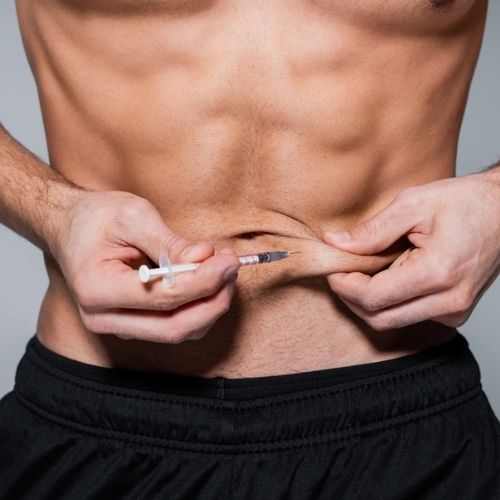
After conducting blood tests, the most effective treatment approach depends on a combination of factors. At Tower Urology, we focus on your symptoms and testosterone levels to determine the best course of action for your individual health needs.
Often, the primary treatment for low T involves replacing the deficient hormone (testosterone replacement therapy or TRT). Several testosterone supplementation methods are available if this treatment is deemed appropriate for you. Some of the standard testosterone supplementation methods are:
- Testosterone gel (topical therapy)
- This involves applying a testosterone gel directly to the skin daily.
- Testosterone gel is generally easy to use and often has minimal side effects. However, it is essential to take precautions to prevent the gel from transferring to others through skin contact.
- Testosterone injections (TRT injections)
- Testosterone injections can be given either intramuscularly (into the muscle) or subcutaneously (under the skin).
- These injections are typically administered weekly or bi-weekly.
- Testosterone injections allow for customized dosing, but they require either self-injection or regular visits to the doctor’s office.
- Buccal testosterone (oral testosterone)
- This method involves placing a small tablet against the gum.
- Buccal testosterone is less common, primarily due to absorption issues.
Other methods may be considered based on your individual needs. These might include testosterone patches, nasal testosterone (nostril application), or testosterone pellet implants.
The best treatment approach for you will depend on various factors, including your overall health, lifestyle, and preferences.
At Tower Urology, we prioritize your safety and well-being. Our specialists monitor your PSA levels, red blood cell count, and overall health to minimize risks. It’s also important to know that the FDA has strict guidelines in place regarding testosterone drug administration. These guidelines help to ensure safety through rigorous clinical trials and ongoing research.
We believe in open communication and will thoroughly discuss all potential risks and benefits with you to help you make an informed decision about your health.
What are the risks and side effects of testosterone therapy?
It’s natural to have questions and concerns about the potential risks and side effects of any treatment, including testosterone therapy.
Testosterone replacement therapy is generally considered safe when monitored appropriately by healthcare providers. However, like any medical treatment, there are potential side effects that you should be aware of:
- Blood clots: There may be an increased risk of developing blood clots.
- Enlargement of breast tissue (gynecomastia): Some men may experience enlargement or tenderness of the breast tissue.
- Increased red blood cell count: Testosterone therapy can sometimes lead to an increase in the number of red blood cells.
- Worsening of sleep apnea: Testosterone therapy might worsen your symptoms if you already have sleep apnea.
- Fluid retention: You might experience some fluid retention, which can cause swelling in the ankles or legs.
- Potential effects on the prostate: Historically, there have been concerns about a possible increased risk of prostate cancer. However, research in this area is ongoing, and the current guidelines from the AUA advise that there is an absence of evidence linking testosterone therapy to the development of prostate cancer.
For patients with a history of prostate cancer, there are no randomized placebo-controlled trials giving men testosterone therapy after prostate cancer treatments, but initial studies have not demonstrated any increased risk.
Why trust Tower Urology for your low testosterone care?
At Tower Urology, we take a personalized, evidence-based approach to men’s health. All our professionals at Tower Urology are committed to giving you expert care. We take the time to understand you to personalize your treatment plan to your specific needs.
Tower Urology is a proud affiliate of Cedars-Sinai Medical Center, ranked #1 in California and #2 nationwide by U.S. News & World Report. This partnership reflects our dedication to delivering the highest standard of urologic care alongside the best urologists in Los Angeles.
We invite you to establish a care plan with Tower Urology.
Tower Urology is conveniently located for patients throughout Southern California and the Los Angeles area, including Beverly Hills, Santa Monica, West Los Angeles, West Hollywood, Culver City, Hollywood, Venice, Marina del Rey, Burbank, Glendale, and Downtown Los Angeles.
Our services include treatment for chronic testicular pain, Peyronie’s disease, male infertility, and low sperm count (oligospermia).
Low testosterone FAQs
Testosterone replacement therapy (TRT) can be life-changing, but it’s not for everyone. Some men manage mild testosterone deficiency without treatment, while others benefit significantly from testosterone supplementation. Our healthcare provider can help determine if testosterone therapy is right for you.
It’s not just about a number. While the AUA generally defines low testosterone as below 300 ng/dL in a blood test, treatment isn’t based solely on that. Testosterone treatment, like TRT, is typically recommended for men with confirmed low testosterone and symptoms affecting their quality of life.
Some men with levels below 300 ng/dL may not need treatment, while others with slightly higher levels might. Ultimately, the decision is personal, made with your healthcare provider, considering both lab results and your symptoms.
Coverage varies depending on your insurance plan and medical conditions. Some plans cover testosterone treatment if lab results confirm low levels and symptoms justify therapy.
Most men notice increased energy, improved muscle strength, and better sexual function within a few weeks of starting TRT. Long-term benefits include:
- Enhanced bone density
- Reduced body fat
- Improved mood and cognitive function
At Tower Urology, we conduct follow-up appointments every three to six months to adjust your treatment plan and monitor for side effects.
Lifestyle changes can help support testosterone production, even if complete reversal isn’t possible. Strategies include:
- Regular exercise (especially strength training)
- Maintaining a healthy weight
- Eating a balanced diet rich in protein, healthy fats, and vitamins
- Managing stress and getting enough sleep
For some men, these changes may increase testosterone levels naturally, delaying or reducing the need for testosterone supplementation.
Sources
What is Low Testosterone?
https://www.urologyhealth.org/urology-a-z/l/low-testosterone
Low complication rates of testosterone and estradiol implants for androgen and estrogen replacement therapy in over 1 million procedures
https://pmc.ncbi.nlm.nih.gov/articles/PMC8165877/
Testosterone Therapy in Men With Prostate Cancer
https://pubmed.ncbi.nlm.nih.gov/26719015/























































